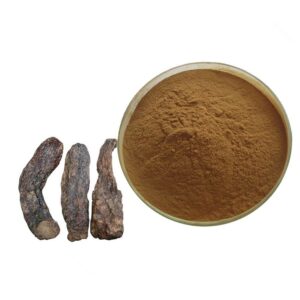Plant extracts can be incorporated into daily wellness routines in various ways.
Here are some common ways to utilize plant extracts for wellness:
Herbal Teas: Many plant extracts can be steeped in hot water to create herbal teas. For example, chamomile, peppermint, ginger, and green tea extracts are popular choices. These teas can be enjoyed for their soothing, invigorating, or relaxing properties.
Aromatherapy: Essential oils derived from plant extracts can be used in aromatherapy. They can be diffused in a room using a diffuser or added to bathwater for a calming and therapeutic experience. Lavender, eucalyptus, lemon, and rosemary essential oils are commonly used.
Herbal Supplements: Plant extracts are available in supplement form, such as capsules or tinctures. These supplements can be taken orally to support specific wellness goals, such as immune health, stress management, or sleep quality. It’s important to consult with a healthcare professional before starting any new supplement regimen.
Topical Applications: Plant extracts can be incorporated into skincare and body care routines. For example, aloe vera extract is used in moisturizers and sunscreens for its soothing properties. Tea tree oil extract is commonly used in acne treatments, and rosehip oil extract is used for its nourishing effects on the skin.
Culinary Use: Some plant extracts can be added to food and beverages to enhance flavor and provide potential health benefits. For instance, turmeric extract can be used in cooking or added to smoothies for its anti-inflammatory properties. Cinnamon extract can be sprinkled on oatmeal or used in baking for its warming flavor.
Herbal Baths: Adding plant extracts, such as lavender or chamomile, to a warm bath can promote relaxation and alleviate stress. These extracts can be used in the form of bath salts, bath oils, or herbal sachets.
Natural Remedies: Plant extracts have been used for centuries in traditional medicine practices. They can be incorporated into natural remedies for various ailments. For example, ginger extract is used for digestive issues, and echinacea extract is believed to support immune function.
When incorporating plant extracts into daily wellness routines, it’s important to consider individual sensitivities, allergies, and potential interactions with medications. It’s recommended to consult with a healthcare professional or a qualified herbalist to determine the appropriate plant extracts and dosages for your specific needs.
How are plant extracts used in the food and beverage industry?
Plant extracts have a wide range of applications in the food and beverage industry. Here are some common ways plant extracts are used:
Flavoring Agents: Plant extracts are used as natural flavoring agents to enhance or impart specific flavors in food and beverages. For example, vanilla extract is widely used for its sweet and aromatic flavor, while almond extract provides a distinct nutty taste. Other extracts like lemon, orange, plant extract suppliers mint, and coffee are also commonly used for flavor enhancement.
Coloring Agents: Certain plant extracts are used as natural coloring agents to add or enhance the color of food and beverages. For instance, beetroot extract is used to provide a natural red color, turmeric extract for yellow, and spirulina extract for blue-green hues. These natural colorants are often preferred over synthetic food dyes.
Preservatives: Some plant extracts have antimicrobial properties and can be used as natural preservatives. Rosemary extract, for example, contains compounds that help inhibit the growth of bacteria and extend the shelf life of food products. Other plant extracts, such as grapefruit seed extract and green tea extract, are also used for their preservative effects.
Nutritional Supplements: Plant extracts are commonly used in the formulation of nutritional supplements and functional foods. Extracts from plants like ginseng, ginger, turmeric, and green tea are incorporated into products to provide potential health benefits, such as antioxidant support or immune system enhancement.
Sweeteners: Certain plant extracts are used as natural sweeteners or sugar substitutes. Stevia extract, derived from the stevia plant, is a popular natural sweetener that is significantly sweeter than sugar but has fewer calories. It is used as an alternative to sugar in various food and beverage products.
Health and Functional Foods: Plant extracts are often used in the production of health-focused or functional foods. These foods are formulated to provide specific health benefits beyond basic nutrition. Plant extracts may be added to products like energy bars, protein powders, and dietary supplements to enhance their functional properties.
Herbal Infusions: Plant extracts are used to create herbal infusions or tisanes. These are beverages made by steeping plant materials, such as leaves, flowers, or herbs, in hot water. Examples include chamomile tea, peppermint tea, and hibiscus tea, which are consumed for their flavor and potential health benefits.
It’s important to note that the use of plant extracts in the food and beverage industry is subject to regulations and guidelines regarding safety, labeling, and permissible usage levels. Manufacturers must comply with these regulations to ensure consumer safety and product quality.
